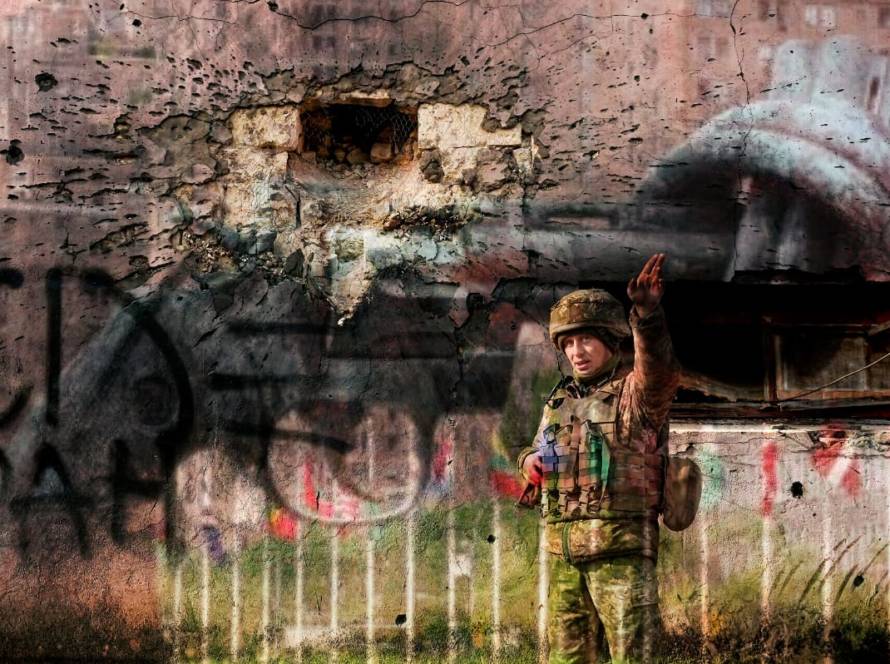By Deshani Samaragunarathna
While Rishi Sunak’s recent resignation after a disappointing loss may raise questions, it’s noteworthy that Sir Keir Starmer, in his first address, specifically acknowledged him as “the first British Asian Prime Minister of our country.” This, along with Kamala “Devi” Harris serving as US Vice President, highlights a growing trend of diaspora communities playing a significant role in global politics.
As we are around the corner approaching to the first quarter of this century, it’s clear that the future of the global political order will likely be further shaped by Asian diaspora communities.
Throughout history, migration has been a constant theme, driven by factors like seeking better opportunities, escaping hardship or pursuing freedom and power.
But how do the home countries react to such large-scale migration? Are they simply losing talent, or are they actively engaging their diaspora communities to leverage their economic, technological, and political potential?
Indianness is a way of life OR NRIs: Shaping Geopolitics from Afar
Under Narendra Modi, India appears to be quite aware of the potential of its diaspora population, which exceeds 32 million. The official website, NarendraModi.in, acknowledges the “invaluable contributions” of this community and emphasizes efforts to channel their economic, financial, technological, and global expertise towards India’s growth.
Often termed as “NRIs – Non-Residents of India”, NRIs in the West exert an enormous influence on Indian politics. It is fair to say that this influence has taken its natural course as well as certain thoughtful moves.
The movie Dilwale Dulhaniya Le Jayenge (1995), commonly known as DDLJ by Aditya Chopra, was one of the first to sympathize with and inspire the identities of NRIs. It portrayed Indian-ness not merely as a geographic label but as a way of life, combining consumerism of modern society with respect for Indian traditions and values.
Karan Johar’s Kabhi Khushi Kabhie Gham (K3G) another classic example of developing the idea of the NRI family who maintains cultural citizenship while singing “Om Jai Jagdish Hare” (a Hindu prayer). These concepts of family and values remain vibrant, though NRIs often face an identity crisis, struggling with their cultural identity and nostalgia for home.
While on the other hand Movies like My Name Is Khan, released post-9/11 by Dharma Productions, depicted the polarization of religious discrimination and racial profiling, and featured an autistic Muslim protagonist.
A Diverse Diaspora
It’s important to acknowledge that while the Indian diaspora may predominantly be Hindu, there is significant representation from other minorities like Muslims and Sikhs. For instance, the Punjabi Sikh community in Canada is quite politically engaged.
Following Operation Blue Star in 1984 and the subsequent assassination of Prime Minister Indira Gandhi by her Sikh bodyguard, the Sikh independence movement for Khalistan gained momentum. While the Indian government opposed this movement, labeling it as terrorist, the sentiment found substantial support as a freedom movement among the Sikh diaspora in Canada.
Today, nearly 800,000 Sikhs live in Canada, the largest community outside India. Many view the Golden Temple attack as an assault on their religious and cultural identity. Sikh Canadians, particularly those who migrated in the 1980s and 1990s, have been supportive of an independent Khalistan.
This community is known for its elevated levels of political engagement. Currently, there are 18 Sikh MPs from different parties in the House of Commons. This political engagement extends to influential gurdwara committees across towns with significant Sikh populations.
The UK also has a substantial Sikh diaspora, in the most recent election last week with 12 Sikh MPs, second only to Canada. However, unlike the UK where all Sikh MPs are from the Labour Party, Canadian Sikh MPs represent all three mainstream parties: 13 from the Liberal Party, four from the Conservative Party, one from the New Democratic Party.
In 2023, the assassination of Sikh independence activist Hardeep Singh Nijjar in Canada allegedly by the Indian government – an accusation denied by the government – led to a diplomatic crisis between the two nations. Canada-India relations have been fraught over the issue of Khalistan and Sikh Canadian support for the movement. India has long accused Canada of harboring Sikh terrorists and ignoring the activities of its Sikh citizens. While this issue may recede in the long run, it remains a contentious point in bilateral relations.
Given China’s rise, India holds significant strategic importance for the West. India has always been sensitive about its sovereignty, frequently complaining about external interference in its internal affairs while touting its own respect for other countries’ sovereignty. The US faces a challenging dilemma in this context, having spent the last decade strengthening its partnership with India while also being allied with Canada through NATO.
Beyond Politics: Economic impact
Aside from political influence, the Indian diaspora has significant economic impact. The well-known tech billionaires such as CEO of Google, Microsoft, YouTube, and CEO of the fashion house like Chanel all have Indian origins. According to the World Migration Report 2024 by the UN’s International Organization for Migration, India, Mexico, and China were the top three remittance-receiving countries in 2022.
The growing Indian diaspora is spending, saving, and investing both within India and globally. According to the Reserve Bank of India, NRI bank accounts in India received USD 7.99 billion between April 2022 and March 2023, more than twice the USD 3.23 billion in the previous fiscal year.
Another important aspect of the diaspora is the quality of life in terms of education and earnings. In the US, Indians are emerging as the highest-earning ethnic minority group. Data from the Pew Research Center in 2021 showed that among a population of around 4.4 million, Indians born outside the US earn an average of USD 120,000 per year. South Asians more broadly account for 29% of US Asian buying power, amounting to USD 381 billion of economic influence.
The Indian diaspora also plays a crucial role in Foreign Direct Investment (FDI), transferring technology and technical know-how, facilitating substantial knowledge flow, contributing to tourism, engaging in charity activities, and establishing NGOs to combat social evils. They bring their skills to the countries they settle in, aiding in trade, investment, and promoting exchange of ideas, innovation, professionalism, and management techniques.
Social Remittance
India’s efforts to promote international collaborations in temple restoration, like the Angkor Wat project in Cambodia, showcase the BJP government’s grand strategy to expand the global presence of Hindu culture. Prime Minister Modi’s international engagements, particularly with NRIs, have also further solidified this approach, encouraging investment and tourism in India.
The surprising influence of the diaspora even extends to culinary trends. Believe it or not, England’s national dish was voted to be chicken tikka masala, a dish with clear roots in the Indian subcontinent but clearly won over.
Migration has been a common phenomenon for a long time. The movement of people across borders, along with their ideas, skills, and technical know-how, benefits both the receiving and sending countries.
The role of diaspora communities extends beyond economic remittances to social remittances, including ideas, values, beliefs, and practices. The Indian diaspora, being one of the largest globally, is an indispensable soft power tool crucial for India’s development in many ways.
Apart from being the highest remitter of foreign currency to India, the Indian diaspora has made immense contributions in various spheres, benefiting both their country of origin and their destination. This significant presence deserves sincere attention for its upliftment and continued support.
Deshani Dewmini Samaragunarathna graduated with a Bachelor of Science (BSc) in Strategic Studies and International Relations from the Faculty of Defense and Strategic Studies at the General Sir John Kotelawala Defence University. In 2022, She represented Sri Lanka as a Global UGRAD Scholar at the University of Alabama in the US. Geopolitics, history, public diplomacy, and soft power are among her research interests.
Factum is an Asia-Pacific focused think tank on International Relations, Tech Cooperation, Strategic Communications, and Climate Outreach accessible via www.factum.lk.
The views expressed here are the author’s own and do not necessarily reflect the organization’s.


